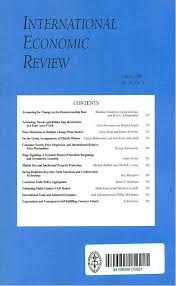
\Gutierrez Puigarnau\, E. and \van Ommeren\, J.N. (2011). Welfare effects of distortionary fringe benefits taxation: The case of employer-provided cars International Economic Review, :.
-
Affiliated authorsEva Gutierrez Puigarnau, Jos van Ommeren
-
Publication year2011
-
JournalInternational Economic Review
In Europe, many employees receive company cars as fringe benefits induced by taxation. We analyze the welfare effects of company car taxation for the Netherlands by estimating to what extent car expenditure and private car travel change when employees receive a company car. Tax treatment of company cars generates an annual welfare loss, ranging from €600 to €780 per company car, mainly due to a shift toward more expensive cars (from €420 to €600), but also due to increased private travel (€180). For the whole of Europe, the annual welfare loss is about €12 billion. {\textcopyright} (2011) by the Economics Department of the University of Pennsylvania and the Osaka University Institute of Social and Economic Research Association.